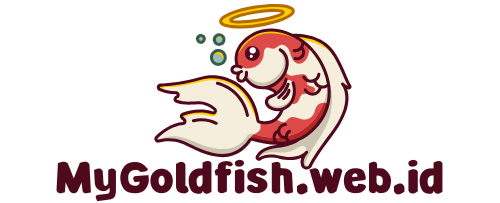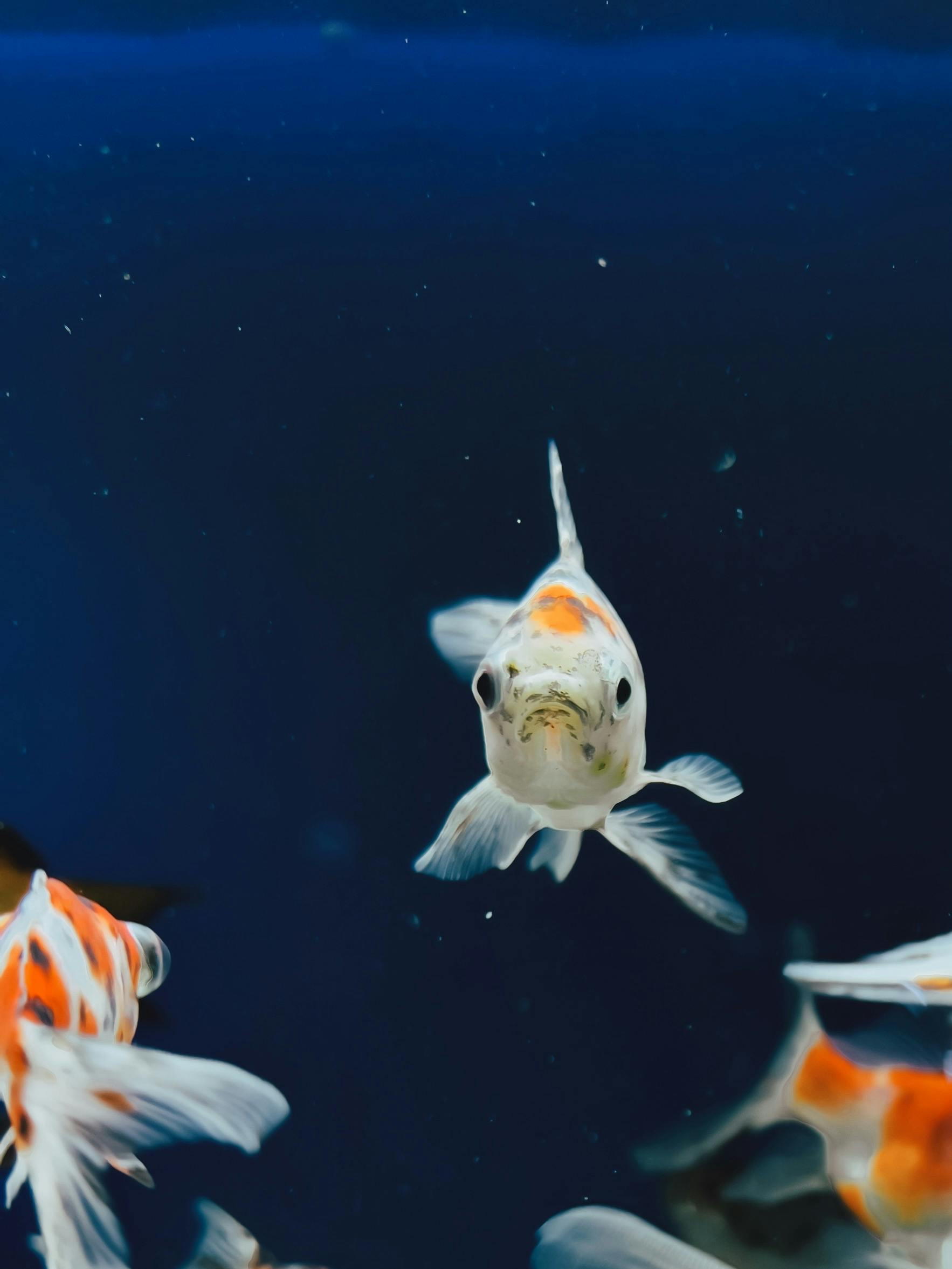Welcome to our comprehensive guide on goldfish nutrition! A balanced diet is crucial for the health and vitality of your beloved goldfish. In this article, we will provide you with valuable information and tips on feeding your goldfish, ensuring they receive the necessary nutrients for optimal growth and well-being. Whether you are a beginner or an experienced goldfish owner, this guide will equip you with the knowledge to make informed decisions regarding their diet. So, let’s dive in and discover the key aspects of goldfish nutrition!
The Importance of a Balanced Diet for Goldfish
Goldfish, like any other living creature, require a well-balanced diet to maintain optimal health and thrive. A proper diet not only aids in their growth but also supports their immune system, enhances their colors, and improves their overall well-being.
When it comes to feeding your goldfish, it’s essential to provide a variety of foods to ensure they receive all the necessary nutrients. A balanced diet should consist of:
- Protein: Goldfish need a good source of protein for muscle development and repair. This can be obtained from high-quality fish flakes, pellets, or live foods such as brine shrimp or daphnia.
- Carbohydrates: Carbohydrates provide energy to goldfish. They can be derived from plant-based foods like peas, lettuce, or spirulina-based flakes.
- Vitamins and Minerals: Goldfish require a range of vitamins and minerals for proper growth and maintenance. These can be found in specialized goldfish pellets or through supplementation with vegetables like spinach or broccoli.
- Fats: While goldfish don’t need a high-fat diet, a small amount of fat is necessary for their well-being. Opt for low-fat foods like brine shrimp or bloodworms.
Feeding Frequency and Portion Control
It’s important to strike a balance between underfeeding and overfeeding your goldfish. Overfeeding can lead to obesity, poor water quality, and digestive issues, while underfeeding can result in malnutrition.
As a general rule, it’s recommended to feed your goldfish small portions 2-3 times a day. Only offer an amount that they can consume within 2-3 minutes. Monitor their eating habits and adjust the portion size accordingly to prevent overfeeding or wastage.
Remember, goldfish have small stomachs, and they are opportunistic eaters. They will continue eating even when they are full, so it’s vital to avoid overfeeding to maintain their health.
Choosing the Right Foods for Your Goldfish
When it comes to selecting food for your goldfish, there are several options available. Let’s explore some of the choices and factors to consider:
1. Commercial Goldfish Foods
Commercially available goldfish foods, such as flakes and pellets, are convenient and provide a balanced diet. Look for high-quality brands that offer a good blend of proteins, carbohydrates, vitamins, and minerals. It’s advisable to vary the type of food you offer to ensure your goldfish receives a diverse range of nutrients.
2. Live Foods
Live foods can be a great addition to your goldfish’s diet as they mimic their natural feeding habits. Options like brine shrimp, daphnia, or bloodworms are rich in protein and can be purchased frozen or live. However, it’s important to ensure that the live foods are from a reputable source to avoid introducing harmful bacteria or parasites to your tank.
3. Vegetables and Greens
Adding vegetables and greens to your goldfish’s diet provides essential vitamins and minerals. Options like peas, lettuce, spinach, or cucumber can be blanched and then chopped into small pieces to make them easier for your goldfish to consume. Remove any uneaten vegetables after a few hours to prevent fouling of the water.
4. Homemade Goldfish Food
If you prefer to make your own goldfish food, you can do so by creating a gelatin-based mixture using ingredients like fish, shrimp, vegetables, and gelatin. This allows you to have complete control over the ingredients and customize the food according to your goldfish’s nutritional needs. However, ensure you follow proper recipes and guidelines to maintain a balanced diet.
5. Avoiding Harmful Foods
There are certain foods that should never be fed to goldfish as they can be harmful or even toxic. Avoid feeding them human food, processed snacks, bread, or foods that are high in salt, sugar, or spices. Additionally, some plants, like certain species of lilies, can be toxic to goldfish, so it’s important to research any new additions to their diet.
By offering a variety of foods and ensuring a well-rounded diet, you can provide your goldfish with the nutrition they need to thrive and lead a healthy life.
Supplementing Your Goldfish’s Diet
While a balanced diet is crucial for your goldfish’s overall health, there may be instances where additional supplementation is necessary. Here are some factors to consider when supplementing your goldfish’s diet:
1. Vitamin and Mineral Supplements
In certain cases, goldfish may require additional vitamin or mineral supplements to meet their specific needs. However, it’s important to consult with a veterinarian or an aquatic specialist before introducing any supplements. They can guide you on the appropriate dosage and recommend specific supplements that address your goldfish’s requirements.
2. Treating Specific Health Conditions
If your goldfish is facing a specific health issue, such as swim bladder disorder or fin rot, supplementing their diet with specialized foods or medications may be necessary. These targeted treatments can help alleviate symptoms and promote healing. Again, it’s crucial to seek professional advice to ensure you are using the right products and administering them correctly.
3. Adding Variety to the Diet
While a balanced diet is essential, adding variety to your goldfish’s meals can provide mental stimulation and prevent dietary boredom. Consider rotating between different types of commercial foods, live foods, and homemade options. However, ensure that any new foods introduced are safe and suitable for your goldfish’s digestive system.
4. Observing Your Goldfish’s Behavior
One of the best ways to understand if your goldfish’s diet requires supplementation is by closely observing their behavior and overall health. If you notice any signs of nutritional deficiency, such as loss of appetite, slow growth, or color fading, it may be an indication that their diet needs adjustment. Consulting with an expert can help you identify the specific dietary requirements your goldfish may have.
Remember, while supplements can be beneficial in certain situations, they should never replace a well-rounded and balanced diet. Always prioritize providing a variety of nutritious foods and seek professional advice when necessary.
Tips for Feeding Your Goldfish
Feeding your goldfish is not just about providing the right food; it also involves following some best practices to ensure their well-being. Here are some essential tips to consider:
1. Maintain a Consistent Feeding Schedule
Establishing a regular feeding schedule helps your goldfish develop a routine and prevents overfeeding. Aim for two to three feeding sessions per day, and try to feed them at the same times each day. Consistency is key when it comes to maintaining a healthy diet.
2. Monitor Feeding Time
When you feed your goldfish, observe their eating habits and how much they consume within a few minutes. If there is excess food left uneaten, it’s an indication that you may be overfeeding them. Adjust the portion size accordingly to prevent waste and maintain good water quality.
3. Avoid Overcrowding During Feeding
If you have multiple goldfish in the same tank, it’s important to ensure each fish has equal access to food. Overcrowding during feeding can lead to competition and stress. Consider using feeding rings or separate them into different areas of the tank to ensure fair access to food.
4. Remove Uneaten Food
Goldfish are notorious for creating a mess during feeding. They may spit out or shred food, leaving it scattered around the tank. It’s crucial to remove any uneaten food promptly to prevent it from decomposing and fouling the water. Use a net or siphon to clean up any excess food particles.
5. Provide a Balanced Diet
Remember to offer a variety of foods to meet your goldfish’s nutritional needs. A balanced diet should include a mix of commercial foods, live foods, and fresh vegetables. This ensures they receive a range of proteins, carbohydrates, vitamins, and minerals for optimal health.
By following these tips, you can ensure that your goldfish’s feeding experience is enjoyable, stress-free, and promotes their well-being.
Common Feeding Mistakes to Avoid
Feeding your goldfish can sometimes be a tricky task, and there are some common mistakes that owners make. Here are a few pitfalls to avoid when it comes to feeding your goldfish:
1. Overfeeding
Overfeeding is one of the most common mistakes that goldfish owners make. Remember, goldfish have small stomachs and can easily become overfed, leading to obesity, poor water quality, and various health issues. Stick to the recommended portion sizes and monitor your goldfish’s eating habits to prevent overfeeding.
2. Inadequate Variety
Offering a diverse range of foods is crucial to ensure your goldfish receives all the necessary nutrients. Avoid relying solely on one type of food, such as flakes or pellets. Instead, provide a mix of live foods, vegetables, and commercial foods to promote a well-rounded diet.
3. Feeding Incompatibility
Not all fish species have the same dietary requirements. It’s essential to research and understand the specific nutritional needs of your goldfish. Feeding them incompatible foods can lead to digestive issues and malnutrition. Consult with a professional or do thorough research to determine the best diet for your goldfish.
4. Ignoring Water Quality
Feeding your goldfish goes hand in hand with maintaining good water quality. Uneaten food can quickly decompose and release harmful substances into the water, impacting the overall health of your fish. Regularly clean the tank and remove any excess food to ensure a clean and healthy environment.
5. Neglecting Observation
Observing your goldfish during feeding time is crucial for detecting any changes in behavior or appetite. If you notice a sudden decrease in appetite or any signs of distress after feeding, it may indicate a problem with their diet or health. Stay vigilant and address any concerns promptly.
By avoiding these common feeding mistakes, you can provide your goldfish with the best possible care and contribute to their long-term health and happiness.
In conclusion, proper nutrition plays a vital role in the health and well-being of your goldfish. Providing a balanced diet that includes proteins, carbohydrates, vitamins, and minerals is essential for their growth, coloration, and overall vitality. Remember to feed them in small portions multiple times a day, while avoiding overfeeding and maintaining a consistent schedule.
Choosing the right foods, such as high-quality commercial options, live foods, and vegetables, ensures that your goldfish receives a diverse range of nutrients. Supplementing their diet, when necessary and under professional guidance, can address specific health conditions or nutritional deficiencies.
While feeding your goldfish, it’s important to avoid common mistakes, such as overfeeding, inadequate variety, and neglecting water quality. By observing their behavior and making necessary adjustments, you can promote their well-being and prevent potential health issues.
Remember, a healthy diet goes hand in hand with maintaining a clean and well-maintained tank environment. By providing your goldfish with a nutritious diet and proper care, you can enjoy their vibrant colors, active behavior, and longevity. So, take the time to research and understand their nutritional needs, and watch your goldfish thrive!

